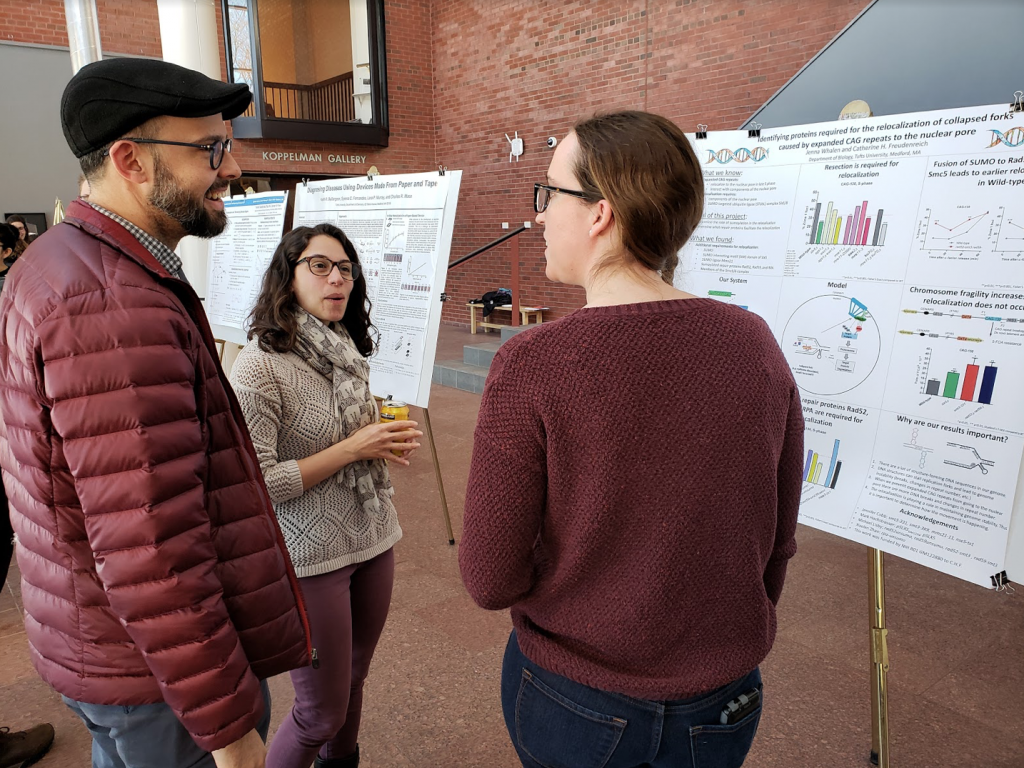
Written by Brenna Gormally, Biology Ph.D. Candidate
As a member of the Graduate Student Council, I’ve had the pleasure of helping organize a number of events. From roundtables with administrators, to pub nights, to community service opportunities, one of the primary goals of the GSC is to provide meaningful experiences for all graduate students within the Tufts community.
One of the most popular events is the annual Research Symposium. Every year in early March, graduate students from across campus come together to present their research in a variety of different formats; posters, speed talks, long talks—there’s something for everyone! And as usual, we aim to feed attendees with plenty of food. This year we even had the Frozen Hoagies food truck, a local ice cream sandwich favorite. Graduate students present their research while faculty members and post-doctoral fellows provide feedback and ultimately choose the top 3 from each category. The winners get awards, but everyone gets free food and has a great time.
This year was no different. The day began with a poster session. Students from Biology, Chemistry, and other departments all presented their research during an informal reception. We were grateful to have judges from diverse, interdisciplinary backgrounds. One of the best things about Tufts is being surrounded by such interesting and broad research. At these kinds of academic events, we emphasize communicating research in an accessible way. Though I’m a biologist, I’ve had the opportunity to learn from students in the English, History, and Child Study and Human Development departments. As a Tufts graduate, I can guarantee you that you’ll have your elevator pitch down and that you’ll be able to clearly discuss your research with anyone who might listen.
The posters were followed by 15-minute talks, during which I learned about triple-stranded DNA, how climate change is impacting the use of bike share programs, and whether cupcakes and muffins are statistically distinguishable. I think you’d be hard pressed to find a symposium that is more diverse than that!
While the Research Symposium is the biggest academic event that the GSC runs, we have also begun a 3-Minute Thesis competition in the fall. 3MT is an international event that began in Australia, but any school can create its own version. It’s pretty much all in the name—you have to describe your thesis research in 3 minutes, using only a single PowerPoint slide with no animations. It is definitely challenging to say the least. This year we had nearly 15 participants from across the campus. Competition was fierce, but Alec Drobac from the Physics and Astronomy department prevailed. We’re looking forward to continuing to expand this event, and possibly even including other Boston-area schools in the future.
These academic-focused events give students the opportunity to practice communicating their research to the broader Tufts community. It’s also a great chance to meet and connect with students outside of your department. You never know where your next collaboration might be, even right on campus!

